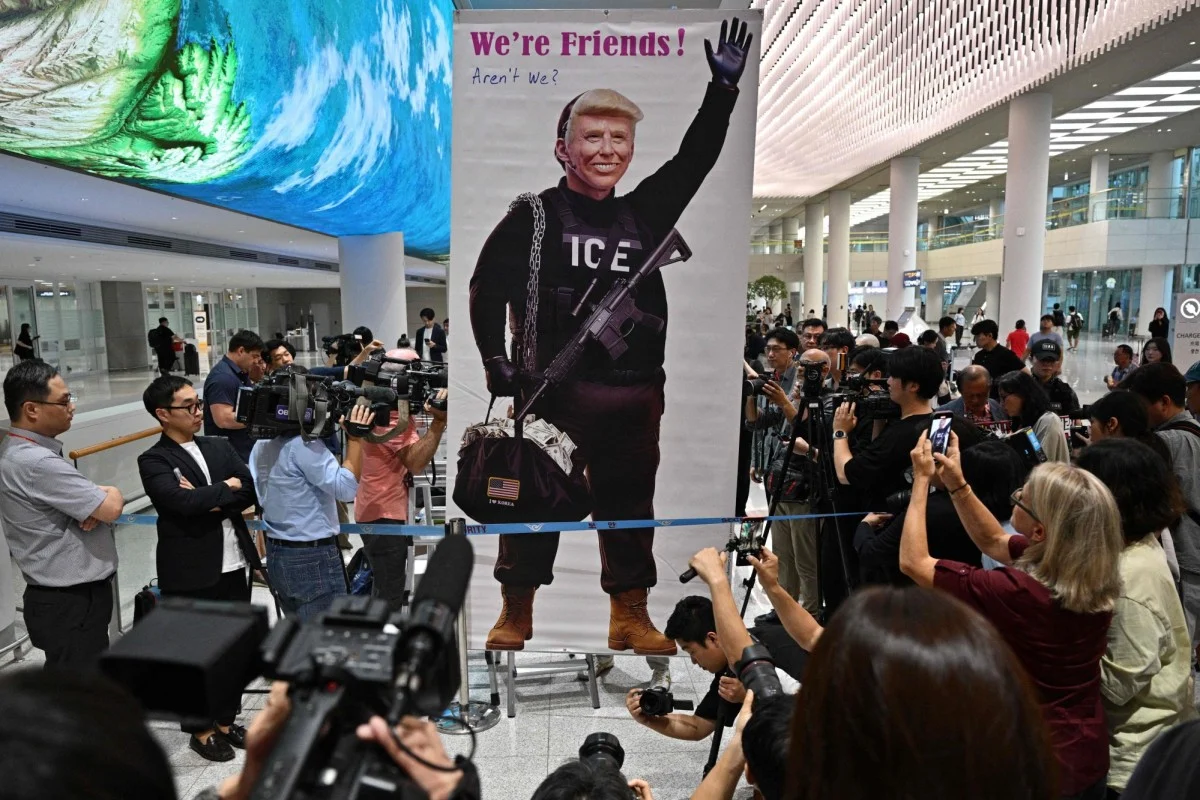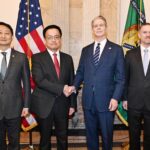LG Energy Solution (LGES) is under scrutiny for how it handles visas, especially after a bunch of workers got detained at its battery plant with Hyundai in Georgia. What seemed like quick fixes are now causing concerns about what’s legal, worker’s rights, and how companies adjust to changing immigration rules.
The Problem: Normal or Against the Rules?
Documents show LGES has been bringing in experts from South Korea to the U.S. using tourist visas, instead of getting the work visas they should have. Things got worse when U.S. Immigration raided the Hyundai-LG plant in Georgia and detained around 475 people, mostly Koreans. Someone leaked instructions from August 2023 telling employees to use tourist visas for short-term jobs. They were told not to say the word work at customs. The instructions even said that using tourist visas too much might get them denied entry to the U.S.
Why the Raid Happened
The Georgia factory, a joint thing from LG and Hyundai, needed pros to install stuff and get it running. A lot of those jobs should’ve had work visas. Immigration started cracking down in 2025, especially on tourist visas, which led to the raid. ICE claimed some workers stayed too long or did work they weren’t allowed to do.
What They Said
LGES claims its workers were doing normal stuff with their visas, like setting up equipment, training people, and keeping an eye on things. The company changed its rules in March 2024 to say what visas to use for what jobs and how long people could stay.
After the raid, lots of workers were fired and sent back to South Korea. LGES apologized for the mess and said its plans are still good, even if they’re a bit late.
What’s At Stake?
**Is it legal?** Using tourist visas for work that needs work visas makes it hard to tell who’s a visitor and who’s a worker. U.S. immigration law says what you can and can’t do on a tourist visa. Going too far can get you in trouble.
**Worker safety:** Some detained workers said they were chained up and kept in bad places. South Korean officials are concerned about human rights and said they’d look into it.
**World relations:** This has made things a bit awkward with Seoul. Korea’s foreign ministry wants clearer visa rules and better safety for its people.
**Business messes:** Companies planning big U.S. projects that need foreign experts are now facing more unknowns. Delays, legal bills, and feeling raided make it harder to plan.
The Big Picture
Global companies often need foreign experts for new factories and tech jobs. If visa systems are confusing or too strict, it can slow things down. U.S. immigration needs to balance following the rules, protecting workers, and helping companies.People are keeping a close eye on companies to see how they treat foreign workers, even subcontractors.
Possible Fixes
People are talking about these solutions:
1. **Visa changes:** South Korea is asking the U.S. for clearer visa types for skilled technicians, especially in battery, semiconductor, and EV industries.
2. **Better company ways:** LGES says it changed its policies. There’s also talk about training workers, getting legal advice, and writing down tasks better to match visa status.
3. **Deals between countries**: South Korea and the U.S. are looking at visa amounts or faster ways for specialized jobs to dodge trouble in the future.
Keep an Eye Out
Are LG or its subcontractors going to get fined because of these investigations?Will visa rules be updated to help specialized workers, but in a way that doesn’t make room for cheating?Will companies use fewer Korean technicians, or will they just plan for longer times and bigger costs?What’s the long story on how Korea and the U.S. get along? These visa problems could affect investments and working together.
The People Involved
There are real people behind all this legal stuff. These technicians came here to build battery factories but got arrested. Their families are worried, and the work is taking longer. They were trying to build a cleaner tomorrow, but now they’re in legal trouble because of old systems.
LG Energy Solution’s mess shows that in today’s world, old systems can fail. Cutting corners might seem easier, but it can cause big problems.To fix stuff like this, we need clear rules, countries cooperating, good business practices, and careful rules. This isn’t just important for LG or Korea. It’s important for any country or company that wants to grow by using global teamwork and tech.
In the end, being clear and fair isn’t just about following rules—it’s about creating an environment where innovation, investment, and people can move forward together.










